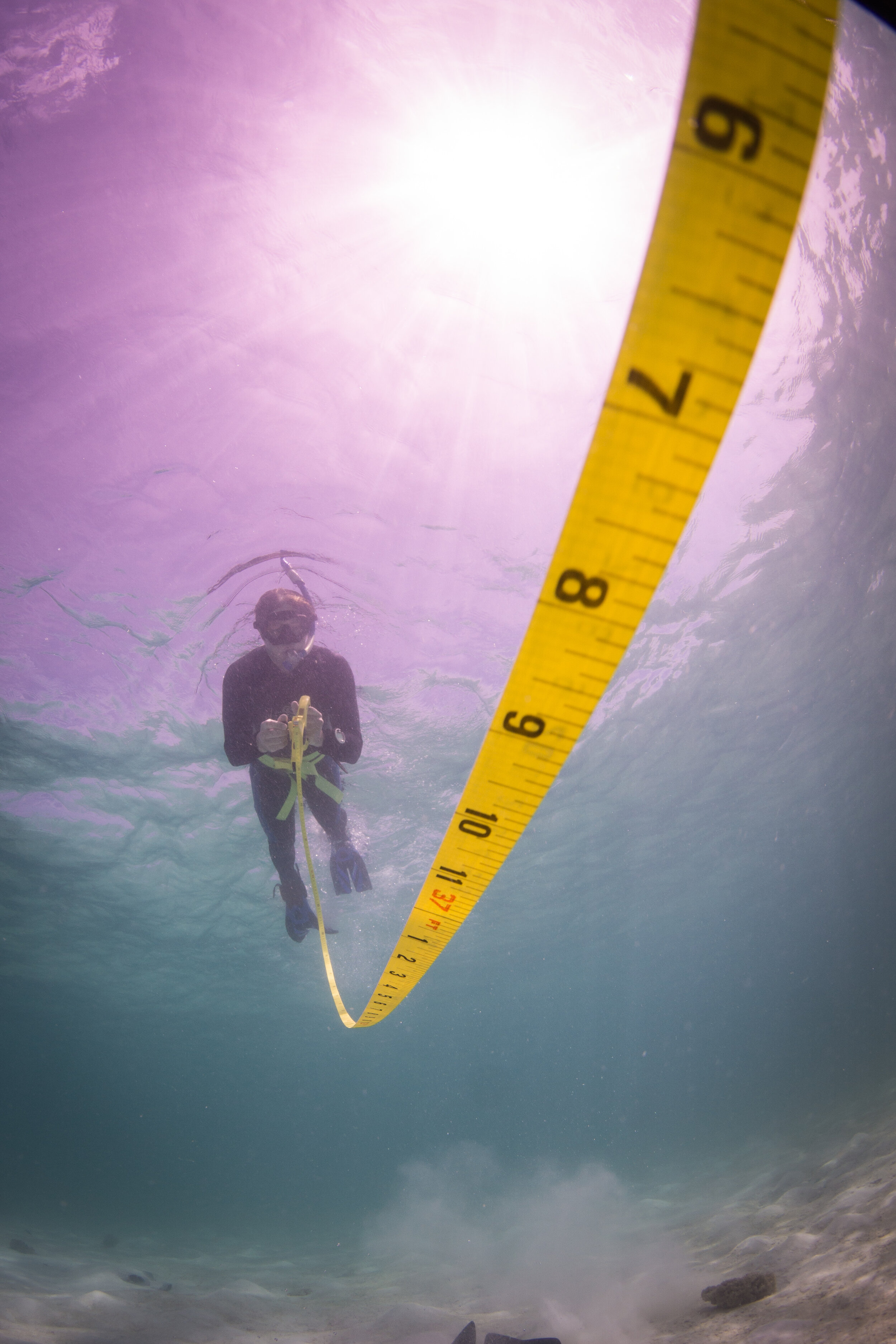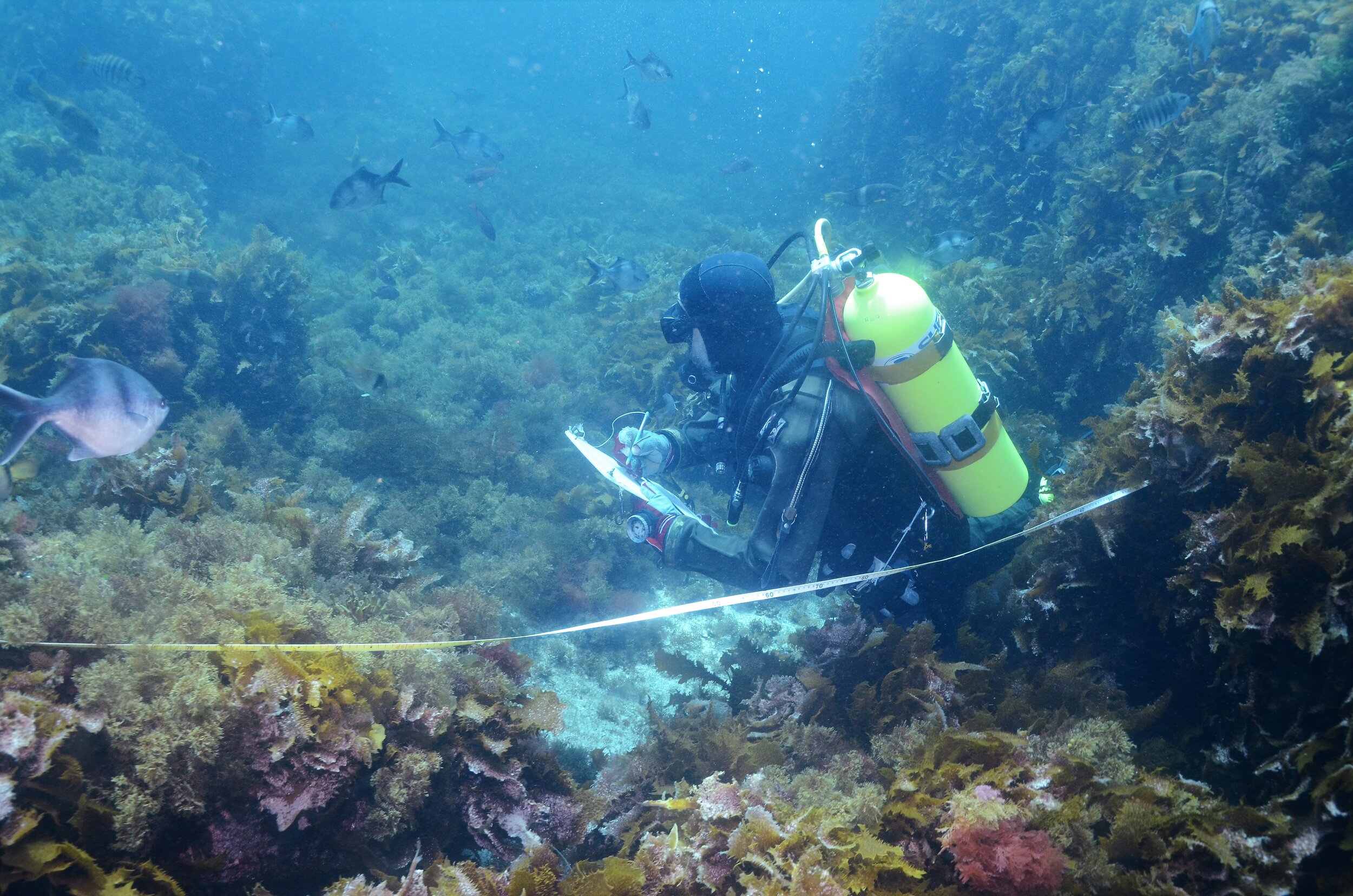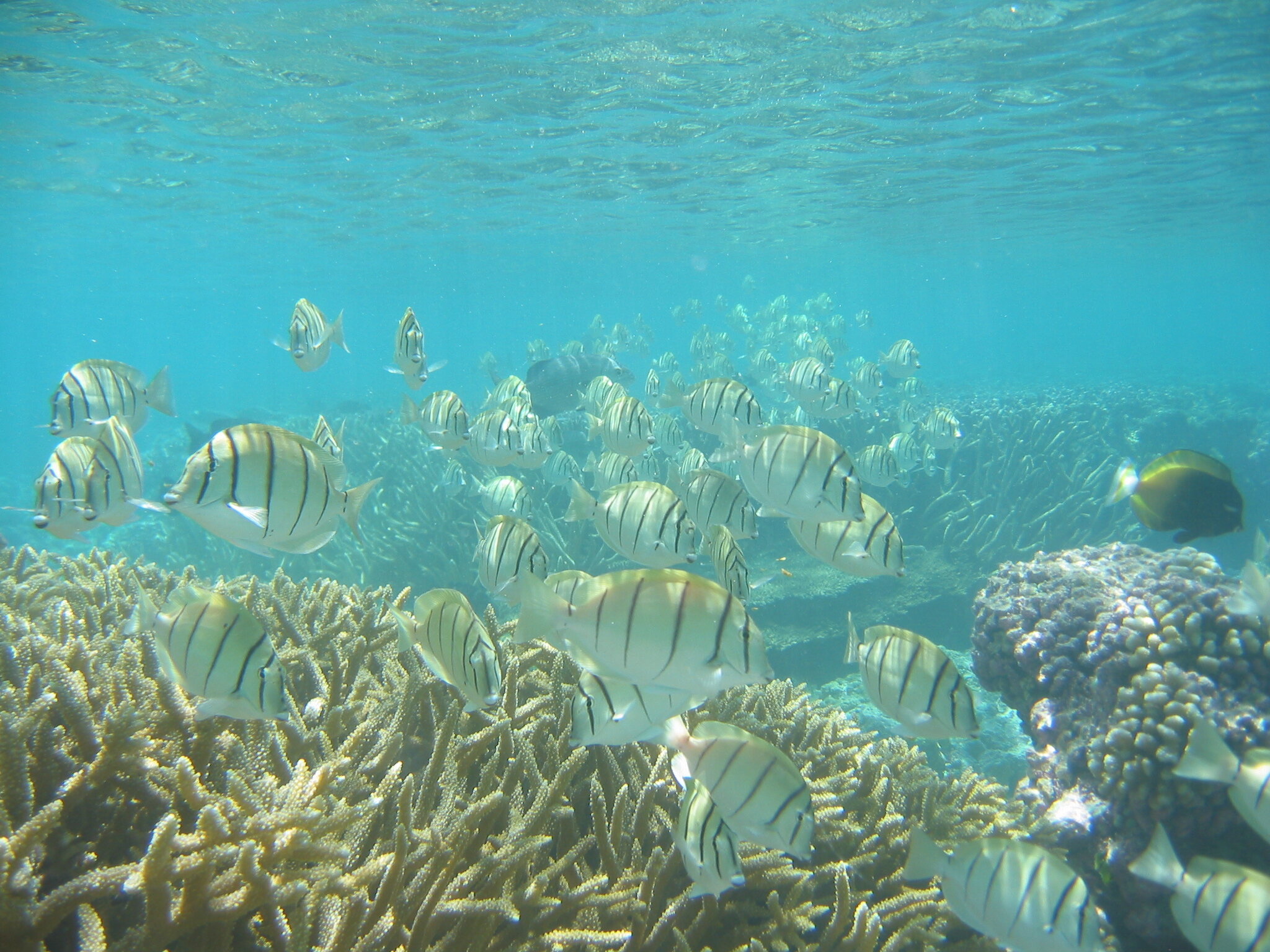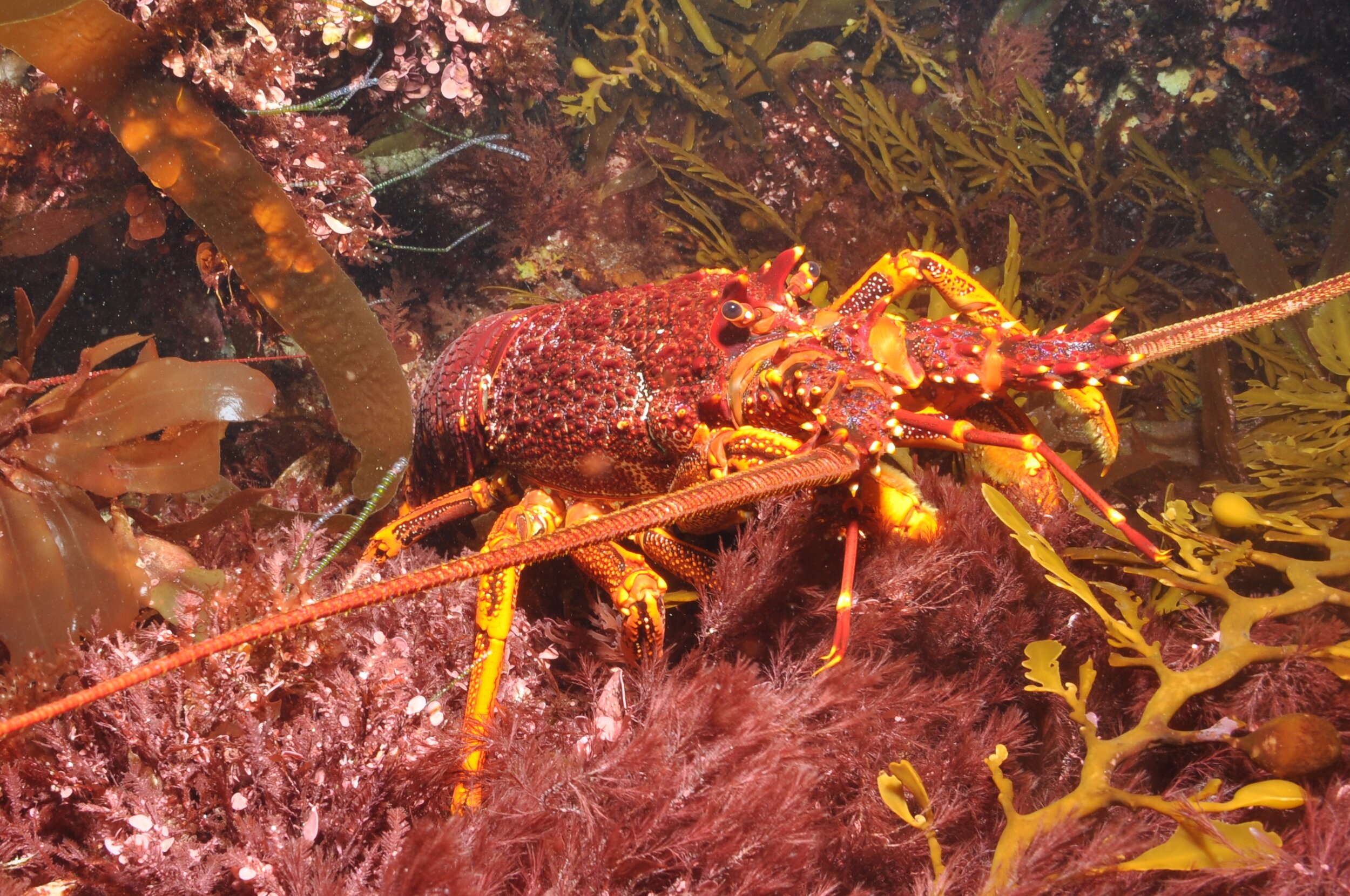New paper showing that tropical and temperate reefs react differently to fishing pressures




We’ve got a long-awaited paper out this week in Ecology and Evolution on how latitude and protection from fishing affect decadal trends in reef food web structure over a continental scale. This interview with Hawai’i Public Radio gives a nice, short summary! But in case you want to know more…
A "trophic cascade" is a sort of domino effect in the ocean. When predators are reduced in number due to fishing, or conversely increase in number due to marine reserves that prohibit fishing, their reduction can sometimes lead to increases in the number of their prey. These prey increases can then lead to a reduction in the prey's prey – so for example, seaweed or seagrass.
We looked at over 100 tropical and temperate reef ecosystems along Australia's east coast to get the macro-scale view of how fishing and marine reserves affect these ecosystems - and how this changes as one moves from the equator to the south pole. We also looked over long times scales - including up to 40 years of protection from fishing - to see how ecosystems change over time when faced with fishing pressure...or relief from fishing in the form of marine reserves.
One of the key results from our study was that trophic cascade prevalence varied strongly over latitude, going from rare in the tropics (<5% of cases) to relatively common in temperate areas (~45%). Along these lines, we also found that trophic control tended toward bottom-up driven in tropical systems and top-down driven in temperate systems. Surprisingly, we also found that trophic cascades were no more or less likely to occur on reefs within marine reserves than on fished reefs.
This project was the result of a long-term collaboration with the Australian Institute of Marine Science and the Institute for Marine and Antarctic Studies at the University of Tasmania. We're deeply indebted to all the past and present members of the AIMS Long-Term Monitoring Program team and the UTas/Australian Temperate Reef Collaboration team for their tireless work in collecting the data that went into the paper - a herculean effort over the past two decades! Importantly, huge thanks to the US National Science Foundation and the Australian-American Fulbright Commission for generously providing the key funding behind the project.